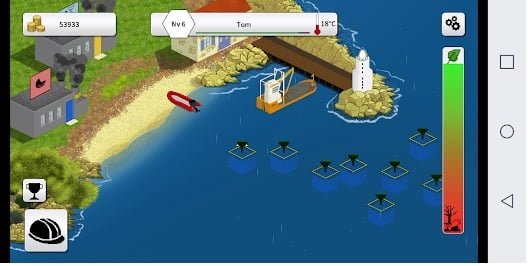
by AquaImpact
Sea food is a healthy food choice. An average person living in the EU consumes 24 kg (live weight) of fish or seafood per year and this is 3.3 kg more than in the rest of the world (EU Facts and Figures, 2022). Sea food consumption has increased for centuries, and the world food fish consumption in 2030 is projected to be 18% higher than in 2018 (FAO, 2020). Aquaculture is foreseen to be the major contributor.
Selective breeding of aquaculture species has been a major driver for the global growth of aquaculture. Well designed breeding programmes have allowed balanced genetic improvement of fish traits leading to more profitable, ethical and environmentally friendly fish production.
In the AquaIMPACT EU-project, novel selective breeding as well as nutritional methods for genetically improved fish are developed to be used in aquaculture. When implemented, these innovations support the self sufficiency of sustainable sea food production in EU.
Selective breeding of aquaculture species may be relatively unknown practice for common public. But it in fact is very similar to the domestication of cultivated plant and livestock species. Aquakultor software is a mobile game to illustrate the practices of aquaculture breeding programmes – and fun to play!
Aquakultor mobile game demonstrates in an easily understandable and visual form the key factors that can be used to improve resource efficiency and fish heath as well as to reduce environmental impacts in aquaculture operations.
The aim is to construct your own aquaculture business, and to invest the profits into development and innovation projects that expand the business and make the operations more sustainable.
A player can invest, for instance, on an own hatchery in which to initiate own in-house fingerling production, instead of purchasing fingerlings from external sources. By investing in research facility and skilled staff, including technicians and animal breeders, it is possible to initiate own selective breeding programme and in step-by-step manner upgrade the rearing technology.
Selective breeding programme can be used to improve disease resistance, feed efficiency and growth rate. Investments can be used to upgrade the breeding programme to use genomic selection.
The ecological footprint of the farm is monitored continuously, and R&D&I projects can be used to reduce the footprint.
Hiring of vets and accountants is also beneficial. Yet, the vets may resign if the player does not actively take care of biosecurity and hygiene at the farm. Also storms and seals may create losses to the farm.
The mobile game is available for free from Google Play.
Aquakultor mobile game has been developed by François Allal (Ifremer) and Mathieu Besson (INRAe, presently at SYSAAF) with The One Man Army Game Studio, in a project focusing on increasing awareness of aquaculture in EU.

